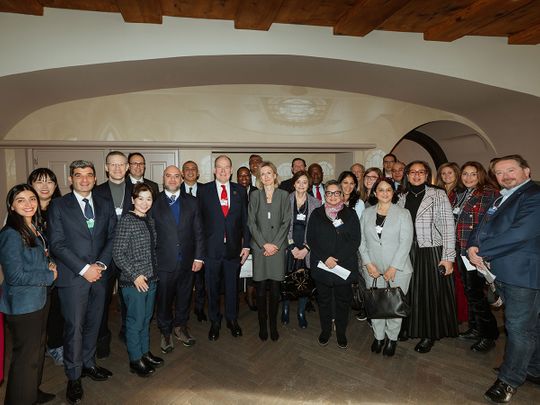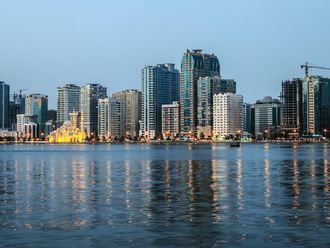
Crescent Enterprises CEO, Badr Jafar, co-hosted with the Prince Albert II of Monaco Foundation a high-level event on Climate and Nature Positive Philanthropy in the presence of Prince Albert II of Monaco during the World Economic Forum’s Annual Meeting in Davos. The purpose of the meeting was to discuss the launching of a global alliance of leading philanthropists and philanthropic organisations with the aim to advance collective efforts in addressing climate, ocean and biodiversity goals, allowing for deeper collaboration and leveraging of resources.
The session was attended by His Excellency Majid Al Suwaidi, Director General of COP28, who delivered remarks on the UAE’s vision for COP28 and the importance of harnessing the potential of all sources of capital, including philanthropic capital, to meet climate and nature objectives. Other attendees included Fady Jameel, Deputy President and Vice Chairman, International, Abdul Latif Jameel; Dr. Tariq Al Gurg, CEO & Vice Chairman of Dubai Cares, Cherie Blair CBE, KC, Founder of the Cherie Blair Foundation for Women; Hussain Sajwani, Chairman of Damac International; Lawrence Di Rita, Greater Washington DC Market President of Bank of America; Johan Eliasch, CEO of HEAD; Jacqueline Poh, Managing Director of Singapore Economic Development Board; Rishad Premji, Executive Chairman of Wipro; Andre Hoffmann, Vice-Chairman of Roche, and Rohini Nilekani, Chairperson of Rohini Nilekani Philanthropies.
In his opening remarks, Prince Albert II of Monaco said, “We are here to take action. To try and put an end to this strange situation which means that only a tiny fraction of philanthropic resources is allocated to an issue which undoubtedly has the most consequences on the future of Humankind: the preservation of the environment. Let’s take action, by persuading philanthropists to redirect and increase their contributions, by creating financial and field-evaluation tools that will enable us to make these resources fully effective, by mobilising our contemporaries, businesses and institutions, and by encouraging multilateral institutions to be more ambitious.”
The discussion highlighted the role the Global Philanthropy Alliance for Climate and Nature will have to advance collective efforts in addressing the climate crisis, specifically in leveraging resources to protect climate, ocean, and biodiversity. The alliance would aim to forge a coordinated approach to foster effective solutions for long-term impact and create awareness and drive catalytic capital to unlock private finance and multilateral commitments to tackling climate change, with $100 trillion in funding estimated to be required to achieve an equitable climate and nature transition by 2050.
Badr Jafar, CEO, Crescent Enterprises, who is also the Founding Patron of the Centre for Strategic Philanthropy based at the University of Cambridge and Strategic Philanthropy Initiative at NYU Abu Dhabi, said: “Launching this global alliance of climate-focused philanthropists and philanthropic organisations will also provide a platform for many across the global growth markets, many of which are on the front lines of climate change, to engage and put forward solutions that are best suited to local requirements. This in turn will allow for the co-creation of innovative interventions in support of the COP28 agenda and beyond, and engage in constructive conversations with the private and public sectors to better identify opportunities for blended financing models.”
Data shows that less than 2% of philanthropic capital is directed towards climate-related issues, although philanthropic foundation funding for climate change mitigation more than tripled over the past five years, growing from $900 million to $3 billion annually. However according to a ClimateWorks report, the top regions to receive climate change mitigation funding in 2021 were the United States, Canada, and Europe. And even as funding to Africa increased by 50% and doubled in Latin America between 2020 and 2021, the two regions combined represented less than 10% of total foundation funding in 2021.
The alliance will collaborate closely with the World Economic Forum’s Giving to Amplify Earth Action (GAEA), a public-private-philanthropy partnership for climate and nature calling for a multi-stakeholder and multi-sector approach to embrace global philanthropy to catalyse climate action.







